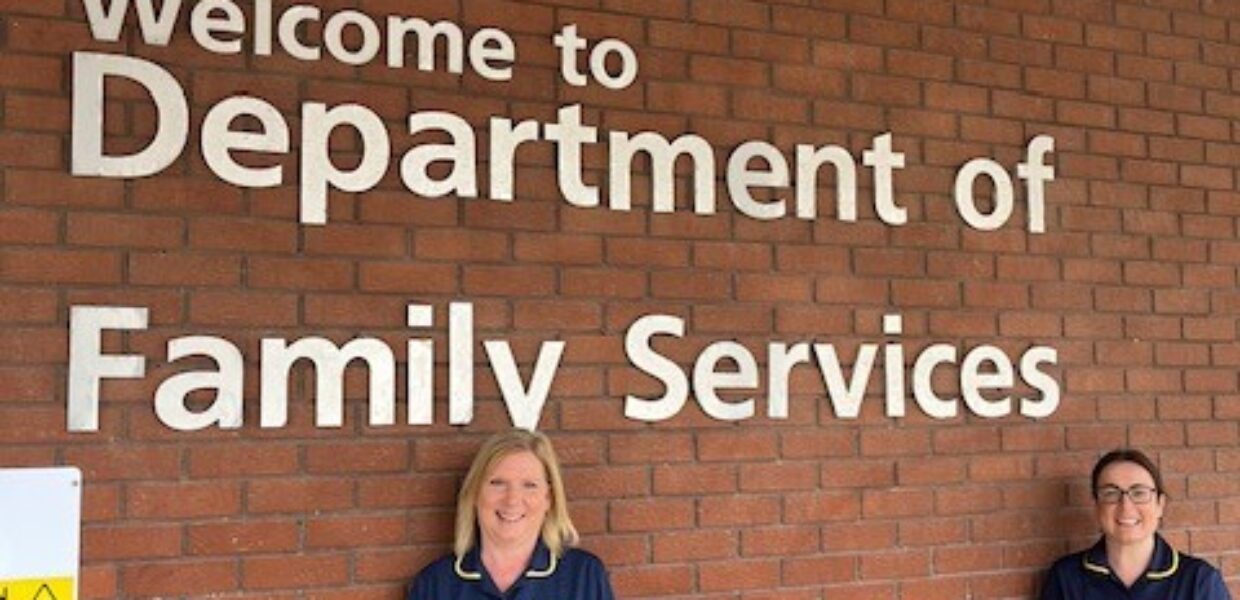Our mental health midwives are urging anyone who’s pregnant not to suffer in silence and instead reach out for help as part of Maternal Mental Health Awareness Week.
Leanne Ellis and Lyndsey Hackett, our Perinatal Mental Health Midwives, are supporting the week-long campaign which runs from Monday 1 May to Sunday 7 May. It is organised and led by the Perinatal Mental Health Partnership UK, and is dedicated to talking about mental health problems during and after pregnancy, as well as helping families access the information, care, and support they need to recover. This year’s theme is ‘Together in a Changing World’, which is about connecting communities through virtual and real-life support.
Leanne said: “Having a baby is a big life event, and it is natural for you to experience a range of emotions and reactions during and after pregnancy. But if this starts to have an impact on how you live your life, you might be experiencing a mental health problem.
“When you conceive, or when the new baby arrives, there is an expectation that you should be happy and excited, however it is estimated that one in four people will experience a mental health problem.”
Maternal mental health issues happen during pregnancy or the first year following birth. They can have long-lasting effects on you and your family if left untreated. But mental health problems are treatable and recognising the signs early and seeking support quickly improves recovery and outcomes for you and your and baby.
Mental health symptoms in pregnancy can fluctuate and may include:
- A lack of interest in things you enjoy doing
- Severe mood swings
- Difficulty bonding with baby
- Isolation from friends and family
- Intrusive and obsessive thoughts.
Lyndsey said: “It’s important to ask for help or support. You’re likely to find that many others are feeling the same way. It is about helping those people affected by maternal mental problems to access the information and help they need to support their recovery.”
Examples of maternal mental health problems include antenatal and/or postnatal depression, anxiety, obsessive compulsive disorder, postpartum psychosis and post-traumatic stress disorder (PTSD). These illnesses can be mild, moderate or severe, requiring different kinds of care or treatment.
Lyndsey and Leanne are on hand to provide extra support and work alongside other healthcare professionals, including the specialist perinatal mental health service, and local mental health services, to make sure you and and your family receive the help and support you need. It is important also to recognise the need of the whole family at this time, so please discuss this with your health care professional so support can be discussed.
They will be manning an information stand, together with nurses from the perinatal mental health specialist team, on:
- Tuesday 2 May between 9am and 4pm in the Family Services waiting room at Grimsby Hospital
- Thursday 4 May between 9am and 4pm at the antenatal clinic at Scunthorpe General Hospital.
The perinatal mental health partnership for the region will be focusing on different things during the week including: starting the conversation about perinatal mental health, shining the spotlight on support, World Maternal Mental Health Day, healthcare professionals information hub, perinatal positivity pot, support for all families and finally reflection. To see the week’s themes, please see Perinatal Mental Health Partnership on Facebook or on Twitter PMHP UK (@PMHPUK). The hashtags of the week will be #togetherinachangingworld and #maternalmhmatters.
Further information can be found on the Perinatal Mental Health Partnership website.
